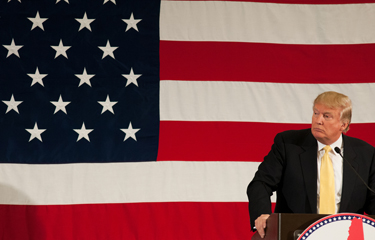U.S. President Donald Trump tweeted Thursday, 1 August, that once again a trade deal had fallen through with China, and as a result, the United States would seek to impose a 10 percent tariff on the remaining USD 300 billion (EUR 270 billion) in goods the U.S. imports from the world’s most populous country.
“We thought we had a deal with China three months ago, but sadly, China decided to re-negotiate the deal prior to signing,” Trump stated.
Those tariffs would start 1 September, according to Trump.
The U.S. Trade Representative has not posted what products would be part of the 10 percent tariff, but if, as Trump proclaimed, the levy covers the remaining products China imports, then it would mean all seafood products of Chinese origin would have at least a 10 percent levy added to it once they arrive in the United States.
In a statement, Myron Brilliant, the executive vice president and head of international affairs for the U.S. Chamber of Commerce, said the new round of tariffs would only cause more harm for American businesses, workers and consumers.
“We are deeply disappointed that the two sides missed the opportunity in May to address the substantive disagreements between them and have not yet reached a comprehensive, enforceable agreement,” he said. “We urge the two sides to recommit to achieving progress in the very near term before these new tariffs come into effect, and to remove all remaining tariffs as swiftly as possible."
Tariffs have divided the seafood industry in the United States. In Alaska, seafood processors send their harvests to Chinese processors, who then package the product and ship it back to the US. Alaska’s congressional representatives have pressed the Trump administration to exclude those reimported products from tariffs.
Maine officials have lamented how the trade war between the world’s two largest economies has affected lobstermen in the state. The state’s congressional delegation asking that fishermen be included in a U.S. Department of Agriculture disaster funding program for farmers affected by tariffs.
However, officials in Louisiana and other Gulf states have pressed for levies on imported seafood because imported products, such as shrimp, are cheaper than similar items harvested by U.S. shrimpers and other fishermen. They also raise concerns about the safety of the imports, which they claim may be treated with antibiotics not approved in the U.S.
In addition to the tariffs, Louisiana officials have pushed for an inspection fee to be placed on imported goods in order to pay for additional inspections.
Photo by Andrew Cline/Shutterstock







